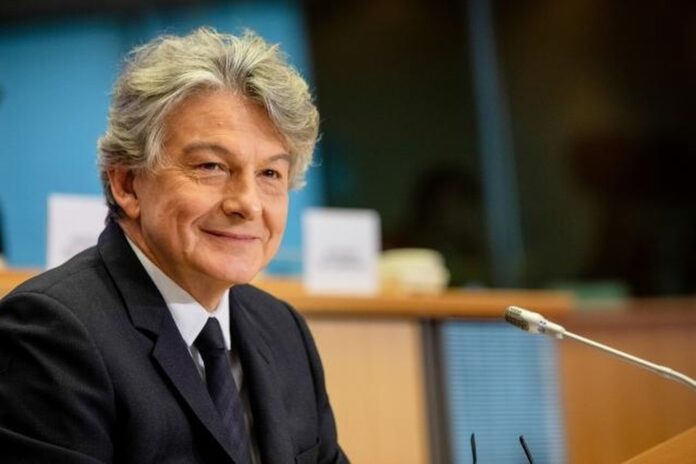Many of Europe’s telecoms ministries pushing back on operators’ proposal
According to a report by Reuters, most of the European Union’s member countries are pushing back against telecoms operators’ campaign to charge Big Tech companies for carrying their traffic.
The telcos want to charge them on the grounds just a handful of companies generate most of the traffic and argue that a levy would help the operators fund building 5G and broadband infrastructure.
However, when 18 telecoms ministers met the EU Industry Commissioner, Thierry Breton (pictured) in Luxembourg last week, they either rejected the proposed fee or said they wanted to see evidence in the form of a study on the need for such a measure and its possible impacts.
BEREC said much the same thing in May.
The ministers are also concerned about Big Tech passing on the additional cost to consumers, according to Reuters’ unnamed sources.
They were also alarmed about the possibility of violating of EU “net neutrality” principles – all users should be treated equally – creating barriers to innovation, and poorer quality products.
The sources said critics of the operators’ proposals came from Austria, Belgium, Czech Republic, Denmark, Finland, Germany, Ireland, Lithuania, Malta and the Netherlands.
On the other hand, France, Greece, Hungary, Italy, Spain and Cyprus were among 10 countries that supported the proposal.
Poland, Portugal and Romania either took a neutral stance or were undecided, according to one person, but another claimed they favour the charges.
Breton is expected to issue a report by the end of June with a summary of opinions on the issue from interested parties, including Big Tech, telecoms providers and others, which will help guide his next actions.
Any proposed legislation must be negotiated with EU countries and EU lawmakers before it can become law.



